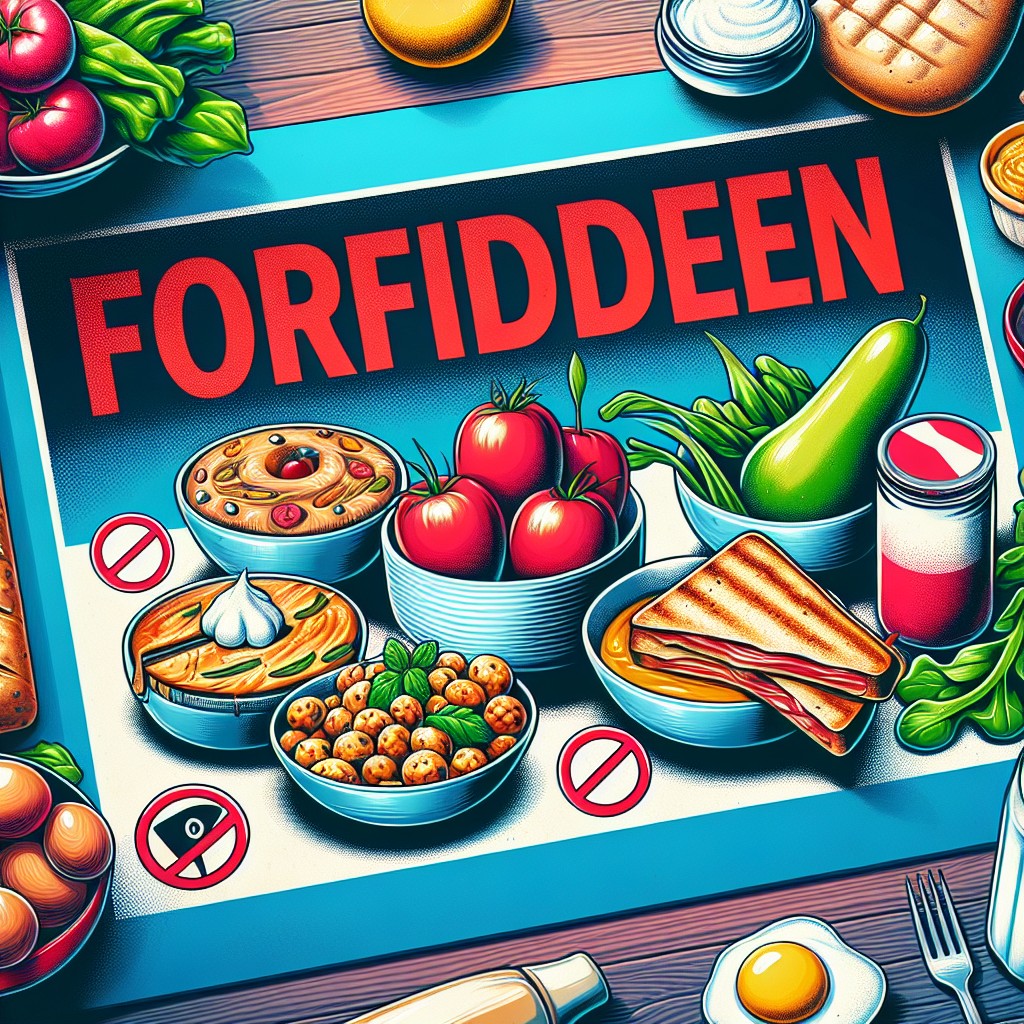An increasing number of people are turning to the paleo lifestyle to improve their health and well-being. By following a paleo diet, individuals aim to mimic the eating habits of our ancient ancestors, focusing on whole, unprocessed foods and avoiding modern-day processed foods.
While many paleo enthusiasts are well aware of the foods they should be consuming, such as lean meats, fish, vegetables, fruits, nuts, and seeds, there are a few surprising foods that are considered forbidden on the paleo diet. These foods may seem harmless or even healthy, but they actually do not align with the paleo principles. In this article, we will explore these forbidden foods to help you optimize your paleo lifestyle.
1. Legumes
Legumes, including beans, lentils, and peanuts, are often considered a healthy protein source for those following a standard diet. However, they are not allowed on the paleo diet. Legumes contain anti-nutrients such as lectins and phytates, which can interfere with the absorption of essential nutrients. Moreover, legumes are relatively high in carbohydrates, which goes against the low-carb approach of the paleo diet. If you are looking for a plant-based source of protein on the paleo diet, consider alternatives such as quinoa or hemp seeds.
2. Grains
Grains, such as wheat, rice, oats, and corn, are another food group that is strictly forbidden on the paleo diet. The main reason is that grains contain gluten, a protein that many people are intolerant or sensitive to. Gluten can lead to inflammation, digestive issues, and other health problems. Additionally, grains are high in carbohydrates, which can cause blood sugar spikes and hinder weight loss efforts. Instead of grains, paleo enthusiasts opt for alternatives like almond flour, coconut flour, or cassava flour for baking and cooking.
3. Dairy Products
While dairy products like milk, cheese, and yogurt are a rich source of calcium and protein, they are not considered suitable for paleo dieters. Dairy contains lactose, a sugar that many people have difficulty digesting. Additionally, dairy products can cause inflammation and digestive issues for some individuals. However, if you are not intolerant to lactose, you may consider consuming small amounts of grass-fed butter or ghee, which have a lower lactose content.
4. Processed Vegetable Oils
Processed vegetable oils such as soybean oil, corn oil, canola oil, and sunflower oil are commonly used in cooking and food manufacturing. However, these oils are high in omega-6 fatty acids and undergo extensive processing, resulting in the creation of harmful compounds. Paleo experts agree that the high omega-6 to omega-3 fatty acid ratio in these oils can contribute to inflammation and increase the risk of chronic diseases. Instead, paleo dieters are encouraged to use healthy fats such as coconut oil, avocado oil, and olive oil.
5. Artificial Sweeteners
Artificial sweeteners, such as aspartame, saccharin, and sucralose, are frequently used as sugar substitutes in various food and beverage products. While they may provide a sweet taste without the added calories, artificial sweeteners can disrupt the body's natural regulatory processes, leading to increased cravings and appetite. Moreover, these sweeteners have been associated with negative health effects, including an increased risk of metabolic disorders and gut dysbiosis. Instead of artificial sweeteners, paleo enthusiasts often opt for natural sweeteners like honey, maple syrup, or stevia.
In conclusion, while following a paleo lifestyle can offer numerous health benefits, it is important to be aware of the surprising foods that are forbidden on this diet. Legumes, grains, dairy products, processed vegetable oils, and artificial sweeteners are all foods that do not align with the principles of the paleo diet. By avoiding these foods and focusing on whole, unprocessed options, you can optimize your paleo lifestyle and improve your overall well-being.

Share This Article
More Articles You Might Like
Discover More Content
Explore our collection of articles across various topics and categories. From cutting-edge technology insights to wellness wisdom, we curate the best stories to expand your horizons.
Article ID: 155